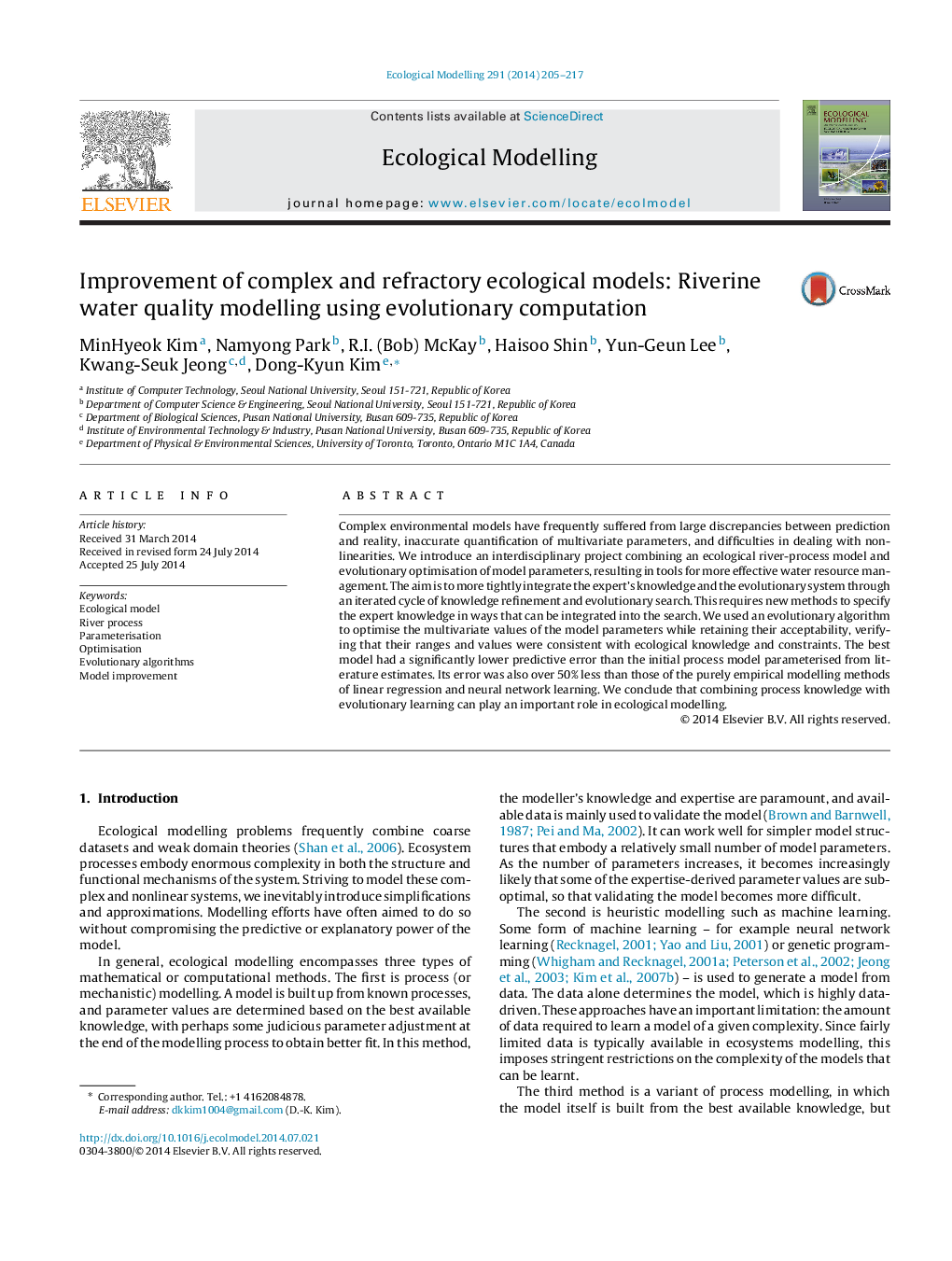| Article ID | Journal | Published Year | Pages | File Type |
|---|---|---|---|---|
| 6296769 | Ecological Modelling | 2014 | 13 Pages |
Abstract
Complex environmental models have frequently suffered from large discrepancies between prediction and reality, inaccurate quantification of multivariate parameters, and difficulties in dealing with nonlinearities. We introduce an interdisciplinary project combining an ecological river-process model and evolutionary optimisation of model parameters, resulting in tools for more effective water resource management. The aim is to more tightly integrate the expert's knowledge and the evolutionary system through an iterated cycle of knowledge refinement and evolutionary search. This requires new methods to specify the expert knowledge in ways that can be integrated into the search. We used an evolutionary algorithm to optimise the multivariate values of the model parameters while retaining their acceptability, verifying that their ranges and values were consistent with ecological knowledge and constraints. The best model had a significantly lower predictive error than the initial process model parameterised from literature estimates. Its error was also over 50% less than those of the purely empirical modelling methods of linear regression and neural network learning. We conclude that combining process knowledge with evolutionary learning can play an important role in ecological modelling.
Related Topics
Life Sciences
Agricultural and Biological Sciences
Ecology, Evolution, Behavior and Systematics
Authors
MinHyeok Kim, Namyong Park, R.I. (Bob) McKay, Haisoo Shin, Yun-Geun Lee, Kwang-Seuk Jeong, Dong-Kyun Kim,
